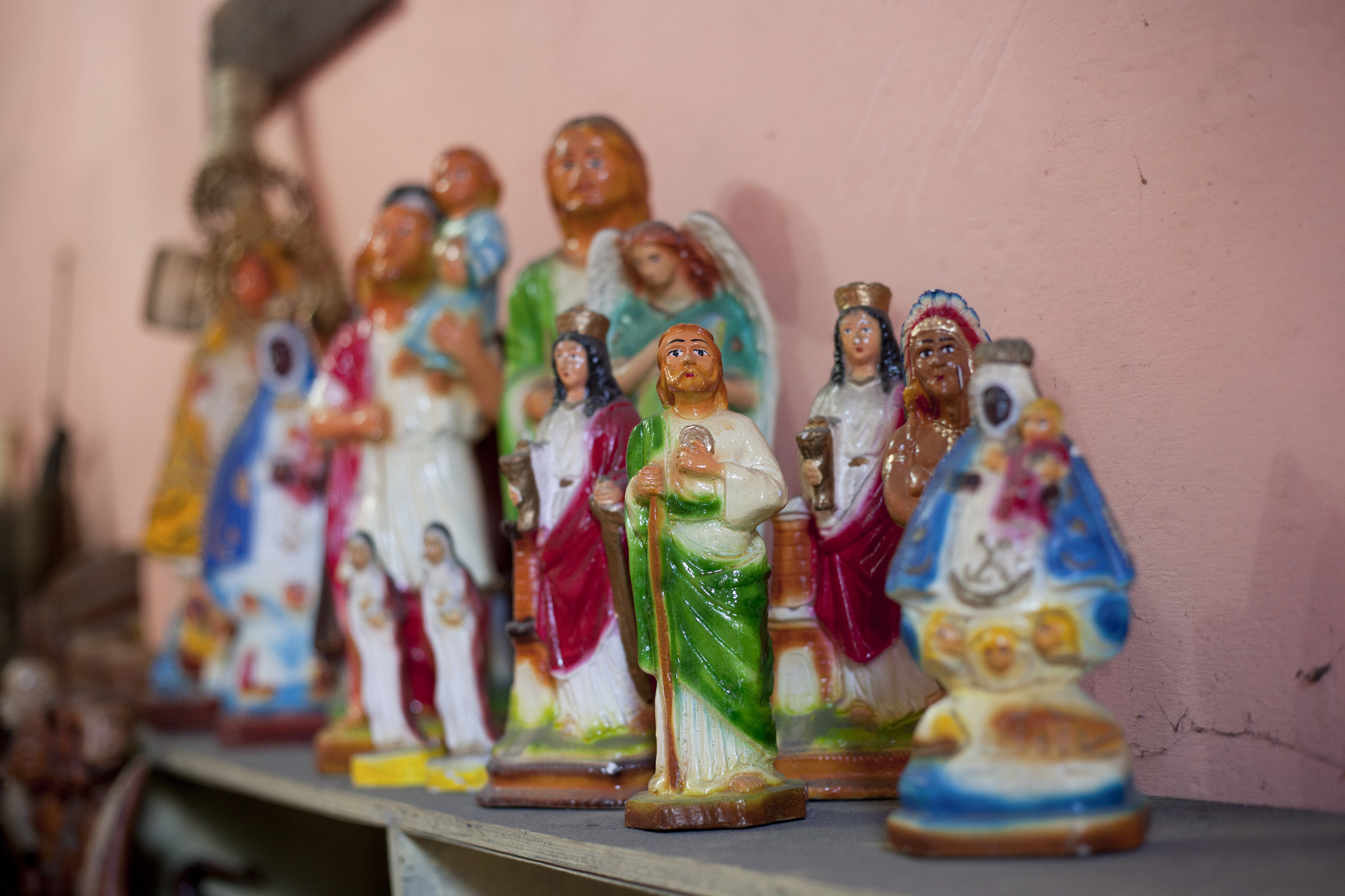
Source: Phil Clarke Hill / Getty
The various cultures that exist within Latinx heritage, or what many refer to as Latinidad, are not monolithic. Cultures are shaped by geographical, racial, and religious differences, and sometimes those differences are the foundations of acts of violence.
The Root reported that in the last three months, over 30 Candomblé and Macumba religious centers have been destroyed in Baixada Fluminese, a poor, majority Black suburb of Rio de Janeiro, Brazil. In 2017, Rio de Janeiro has already recorded 79 attacks against Candomblé houses of Afro-Brazilian religions; 39 between July and September. In 2016, Brazil recorded 776 cases of religious intolerance, which was a 36.5 percent increase from 2015. Much of this violence has been perpetuated by evangelical Christians in Brazil.
“This is religious terrorism,” Vanessa Andrade, a psychologist and Candomblé follower who works with the Center for the Promotion of Religious Freedom, told The Root. “The physical violence destroys a person’s sanity. You feel weak.”
This violence is reminiscent of the origin stories of Yoruba religion in the Americas. During the time of colonization and Spanish settlement in the U.S., the Caribbean, and South America, colonizers kidnapped and imported slaves from Africa. Many of them came from West Africa and the Congo River basin, where they spoke Yoruba and practiced Orisha worship.
In colonies where Catholicism was the reigning religion, enslaved Africans who were caught practicing their traditional religions faced prejudice, prosecution and incarceration from the Spaniard ruling class. In order to keep themselves safe and see their traditions live on, some aligned their Orishas with Catholic beliefs so that the colonizers wouldn’t catch them. This is how Santería came about.
Even today, many immigrants and American descendants of Latinx immigrants who practice Afro-Latinx religions, such as Santería, come from Afro-Latinx backgrounds. These populations are policed and villanized within the Latinx community.
Anti-blackness already runs rampant within the Latinx community, particularly among white-passing, indigenous, and mestizo (mixed white and indigenous) Latinx people. But because the religion itself has roots in Africa and is so vastly different from Abrahamic religions (the overarching source of the colonizer’s religion), it’s demonized. While Catholicism is heralded as a dignified, holistic religion, Santería is considered brujeria or witchcraft and black magic.
The further the Latinx community comes to accepting that many of our traditions — food, music, and religion alike — are rooted in African tradition, the closer we’ll be to accepting our multi-racial community in general.
















